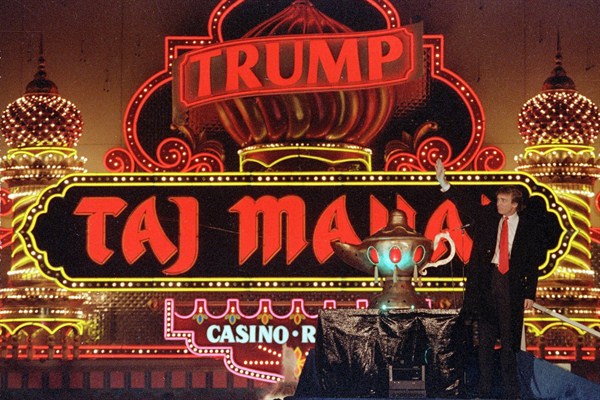Donald Trump campaigned for the presidency in 2016 based on his celebrity status and his reputation as a maverick businessman, vowing to run the country as he ran his real estate empire. The renegotiation of the trade deal with Mexico and Canada formerly known as NAFTA, announced this weekend, is the latest example of how in one striking way, he has been true to his word. The problem is that Trump was a more successful self-promoter than businessman, and the results are on display in the trade deal as well as other aspects of his foreign policy.
Early in his career, Trump forged a reputation as a brash and daring risk-taker. But after his first major triumph, the Trump Tower in Midtown Manhattan, he engaged in a series of high-stakes gambles that, as almost universally predicted, all failed. Whether it was opening casinos in Atlantic City, fielding a team in an upstart professional football league or launching an eponymous airline, Trump basked in the glory of the opening-night marquee lights, then promptly ran all his ventures into the ground.
Trump’s return from financial and reputational ruin involved a change of tactics. Instead of actually building hotels and towers, he began franchising his name to developers who did the dirty work for him. They assumed the risk and he enjoyed a cut of the profits, boosted by the association with his newfound reality TV celebrity persona. On several fronts, we now see the same dynamic at work in his approach to the foreign policy crises he has provoked since taking office.

